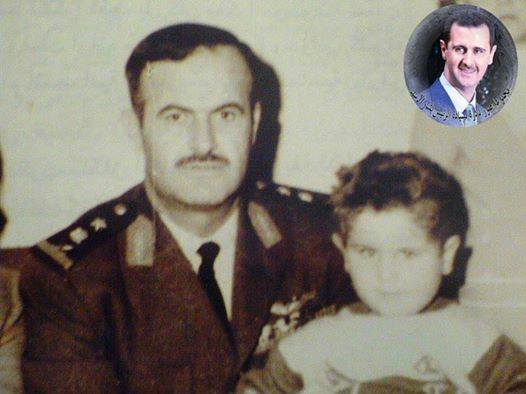Syrian Alawis Getting Ready for the Day After Assad
Samir Altaqi/Esam Aziz/Middle East Briefing/August 15/15
The story started on Aug 6, 8 pm, when bad luck put two cars on the entrance of Al Azhary Roundabout in the Assad loyal coastal city of Latakia. One car was driven by Colonel Hassan Al Shaikh, a military engineer in Syria’s air force and a member of a prominent Alawi family in the city. The second was driven by Sulliman Al Assad, the son of Bashar Al Assad cousin Helal. Helal was killed in a fight with the opposition in March 2014 while leading Assad civilian paramilitary gangs called Shabiha and known for abhorrent atrocities against civilians.Sulliman started crossing the roundabout, but Al Shaikh crossed first. Sulliman sped up and stopped the car of Al Sheikh, stepped out carrying his machine gun, and shot Al Shaikh, who had his wife and children with him in the car. Al Shaikh died instantly.
But that was only the beginning of the story. The brother of Al Shaikh called all the Bsanada villagers, where his family is based, to gather at the center of the city to protest killing his brother. The protest started slow but soon gathered momentum. It turned into a two day public protest against Assad. The protest reflected many unseen facts that characterize the current moment of Alawi-Assad relations. The brother of the dead officer wrote on his Facebook page “Until when this family (Al Assad’s) will continue feeding on our blood and flesh. Until when our homeland will be torn by these wild dogs”. It was clear that the brother was not reflecting merely the anger of a family that just lost a loved one.
The sentiments among the Alawi community in general is that of deep doubt that Bashar is taking them into a dire impasse. The protesters called for the immediate execution of Sulliman, while security forces stood aside. Another fact is not as direct. Sulliman, who was later arrested by Assad to calm the protests, is one of the local bosses of the Shabiha gangs. Al Sheikh is a military officer. The conflict between the two Assad loyalist camps is known in Syria. The Shabiha tell the Alawis day and night that it is the Assad family that empowered their community and that criticizing the president is a sign of ingratitude. The army tells the population that it, and not the Shabiha, is the ultimate defense line of the community. Could these features of the Alawi community be generalized to wherever there are Alawis all over Syria. It all depends on the particular community, its geographic location and the specific circumstances that shaped the communal sectarian identity in the given case. For example, in Homs, where there is a considerable Alawi community, the Shabiha have total control over the parts of the city where Alawis live. The reason is that Shabiha groups were formed earlier to protest the Alawi areas of the same mainly Sunni city.
The closeness of potential lines of conflict gave the Shabiha a strong base of support among the Alawis there who see a threat few yards away. Due to the reduced sense of threat and established norms of behavior in the coastal urban centers, the Shabiha do not have the same wide base they have in some other places. However, many important questions emerge from the Latakia protests. Is it used by certain circles in top of the Syrian military to distance themselves from the Shabiha and their war crimes? If this is true, could it be an echo of the increasing chatter that Assad’s future is being negotiated and may soon come to an end?
Is it an indication that all war crimes will be hanged on the necks of Assad and his Shabiha in order to preserve the army as an institution? Are some high ranking Alawi officers experimenting with their ability to create a popular base of support among the Alawis? Could it be an attempt to increase the contrast between the “national” army and the sectarian paramilitary? (The brother of Sulliman has strong personal contacts with many senior Alawi officers). These questions may reflect a subjective wishful thinking. But they might be true as well. The choice of either proposition will be provided by the events which will happen in the coming few months among the Syrian Alawis.




















